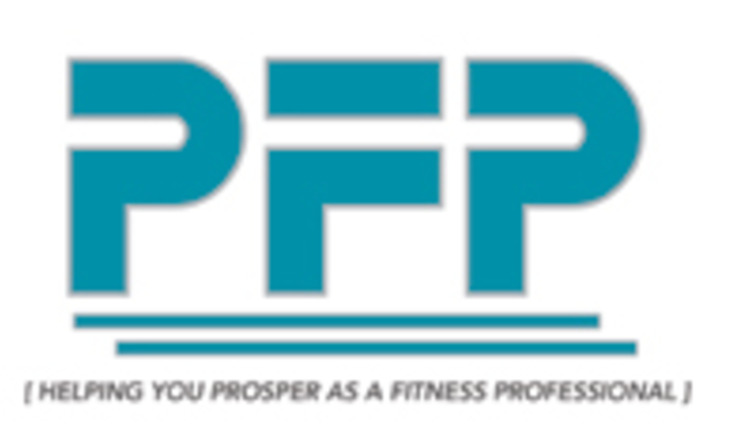I bought a wireless printer. I hooked it up, followed the directions, installed the software and went to my computer to print a document. Suddenly, like magic, the printer -- are you ready for this? -- began to print the document! I yelled "yabba-dabba-doo," I laughed, I cried, I called all my friends and screamed, "This is unbelievable! My printer is printing!"
Okay, maybe I didn't do that. No, I didn't. I just made that up. I did buy a wireless printer, and I did print a document on it, but I didn't celebrate. I simply took the document, glanced at it and went on. Why didn't I whoop and holler? Because that would be crazy. After all, I expected the printer to print.
If my car starts when I push the ignition button, I don't celebrate much. I expect it. If my lawn guy mows my lawn, if my exterminator sprays my property, if the electric company provides me with electricity, or if my waiter brings me my food, it's all nice, but honestly, it doesn't warrant jumping for joy.
So why do so many of our clients hug us, express their joy and tell us that the changes they experienced are "unbelievable"? After all, in most cases, we simply helped them achieve what they expressed that they came to us for. From a purely logical standpoint, it's a bit odd to consider that the woman who says, "I'd like to lose 15 pounds" finds the loss of 15 pounds shocking. Why shouldn't our clients expect the results they seek? Why is meeting the request perceived as unbelievable? Because in the fitness, weight-loss and body-changing industries, people expect disappointment.
We can frown at the absurdity of this, or we can embrace it, and more importantly, we can build upon it. After all, if employing a proven fat loss technology brings the fat loss end we know it can bring, and if that end leads to a celebratory response, imagine if we can exceed not only expectation but even hope!
Can we exceed the goals most of our clients come to us with? I'd suggest we can in the great majority of cases. Not only can we help clients find greater energy, better love their reflections and power up their metabolic machines, but we can gradually help them raise their own bars, recognizing greater potential with each milestone surpassed.
Let's try to consider each client's progress potential not as a predetermined and forever-fixed factor but as a flexible continuum. In other words, it is possible that at the initial consultation, based on existing mindset, emotion, knowledge and physical condition, potential is relatively fixed. But as soon as mindset, emotion, knowledge and physical condition change, so, too, does potential. If a client is to exceed hope, we have to work to establish the fixed potential as a definitive outcome (a goal) and further establish an assessment
protocol that allows us to restate potential.
Here's an example: A new client is relatively sedentary, has limited exercise experience and has failed to maintain any significant weight loss, despite a series of restrictive diets. The client expresses a desire to lose 25 pounds. If you assured this client that he or she would be able to run a marathon or even a 5K,
or regain the physical condition of 10 years earlier, your "push" would exceed perceived potential, and the perceived workload would prove discouraging.
Conversely, if you stress gradual changes in body composition and focus the initial attention on energy, supporting eating and a change in body awareness, this becomes achievable. In a 90-day assessment, you may discover that 14 pounds were lost, four pounds of lean body mass were added, and energy is
beyond anything this client can remember experiencing. With these results, not only is the goal perceived as closer, but the perception of potential has escalated. With each successive milestone, we can help the client to recognize new potential, and over the course of months, many of our clients can exceed initial
hopes. In an industry where most attempts fail, where mediocrity is celebrated,where excellence is rarely recognized, we can go beyond thrilling clients. We can lift them into an emotional stratosphere they never thought capable of reaching.
Consider how exercise and supportive eating have been well-proven to repair mitochondrial damage, build new biologically younger cells, radically improve endurance, power and sense of well-being, and facilitate improvement in mood, sleep habits and recuperation. We can develop individual and collective reputations for making magic happen. Yes, we have the power to change lives, and while we don't want to over-inflate this ability, we certainly want to recognize and tactfully exploit it.
Let's listen to goals, identify real expectations and bring out the expressed hope, then exceed them all. No, we can't do this quickly, and no, we can't take everyone to their greatest potential without their full participation and commitment. But if we shoot for the moon and settle for the mountaintop, we're doing just fine.
Phil Kaplan is a personal trainer with over two decades of in-the-trenches experience. Today, he's committed to helping personal trainers find career growth. His newest book, Commanding Yes: The Science of Compelling People, is available at www.philkaplan.com.
Okay, maybe I didn't do that. No, I didn't. I just made that up. I did buy a wireless printer, and I did print a document on it, but I didn't celebrate. I simply took the document, glanced at it and went on. Why didn't I whoop and holler? Because that would be crazy. After all, I expected the printer to print.
If my car starts when I push the ignition button, I don't celebrate much. I expect it. If my lawn guy mows my lawn, if my exterminator sprays my property, if the electric company provides me with electricity, or if my waiter brings me my food, it's all nice, but honestly, it doesn't warrant jumping for joy.
So why do so many of our clients hug us, express their joy and tell us that the changes they experienced are "unbelievable"? After all, in most cases, we simply helped them achieve what they expressed that they came to us for. From a purely logical standpoint, it's a bit odd to consider that the woman who says, "I'd like to lose 15 pounds" finds the loss of 15 pounds shocking. Why shouldn't our clients expect the results they seek? Why is meeting the request perceived as unbelievable? Because in the fitness, weight-loss and body-changing industries, people expect disappointment.
We can frown at the absurdity of this, or we can embrace it, and more importantly, we can build upon it. After all, if employing a proven fat loss technology brings the fat loss end we know it can bring, and if that end leads to a celebratory response, imagine if we can exceed not only expectation but even hope!
Can we exceed the goals most of our clients come to us with? I'd suggest we can in the great majority of cases. Not only can we help clients find greater energy, better love their reflections and power up their metabolic machines, but we can gradually help them raise their own bars, recognizing greater potential with each milestone surpassed.
Let's try to consider each client's progress potential not as a predetermined and forever-fixed factor but as a flexible continuum. In other words, it is possible that at the initial consultation, based on existing mindset, emotion, knowledge and physical condition, potential is relatively fixed. But as soon as mindset, emotion, knowledge and physical condition change, so, too, does potential. If a client is to exceed hope, we have to work to establish the fixed potential as a definitive outcome (a goal) and further establish an assessment
protocol that allows us to restate potential.
Here's an example: A new client is relatively sedentary, has limited exercise experience and has failed to maintain any significant weight loss, despite a series of restrictive diets. The client expresses a desire to lose 25 pounds. If you assured this client that he or she would be able to run a marathon or even a 5K,
or regain the physical condition of 10 years earlier, your "push" would exceed perceived potential, and the perceived workload would prove discouraging.
Conversely, if you stress gradual changes in body composition and focus the initial attention on energy, supporting eating and a change in body awareness, this becomes achievable. In a 90-day assessment, you may discover that 14 pounds were lost, four pounds of lean body mass were added, and energy is
beyond anything this client can remember experiencing. With these results, not only is the goal perceived as closer, but the perception of potential has escalated. With each successive milestone, we can help the client to recognize new potential, and over the course of months, many of our clients can exceed initial
hopes. In an industry where most attempts fail, where mediocrity is celebrated,where excellence is rarely recognized, we can go beyond thrilling clients. We can lift them into an emotional stratosphere they never thought capable of reaching.
Consider how exercise and supportive eating have been well-proven to repair mitochondrial damage, build new biologically younger cells, radically improve endurance, power and sense of well-being, and facilitate improvement in mood, sleep habits and recuperation. We can develop individual and collective reputations for making magic happen. Yes, we have the power to change lives, and while we don't want to over-inflate this ability, we certainly want to recognize and tactfully exploit it.
Let's listen to goals, identify real expectations and bring out the expressed hope, then exceed them all. No, we can't do this quickly, and no, we can't take everyone to their greatest potential without their full participation and commitment. But if we shoot for the moon and settle for the mountaintop, we're doing just fine.
Phil Kaplan is a personal trainer with over two decades of in-the-trenches experience. Today, he's committed to helping personal trainers find career growth. His newest book, Commanding Yes: The Science of Compelling People, is available at www.philkaplan.com.










